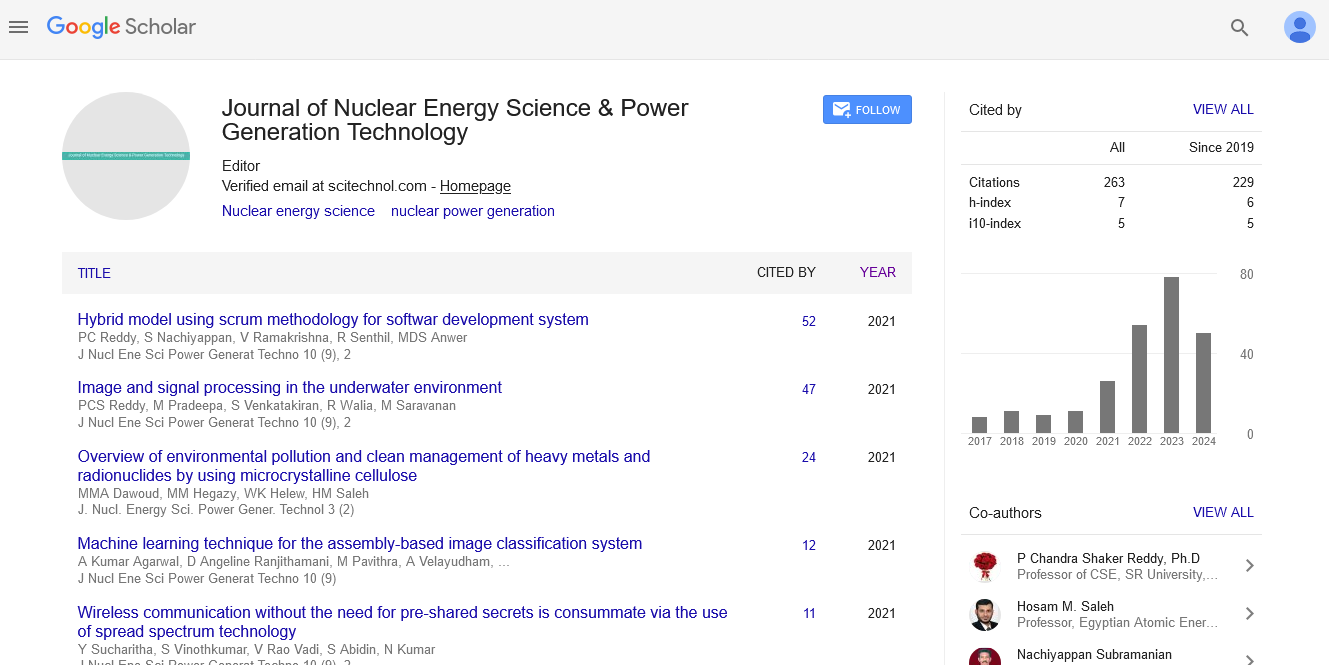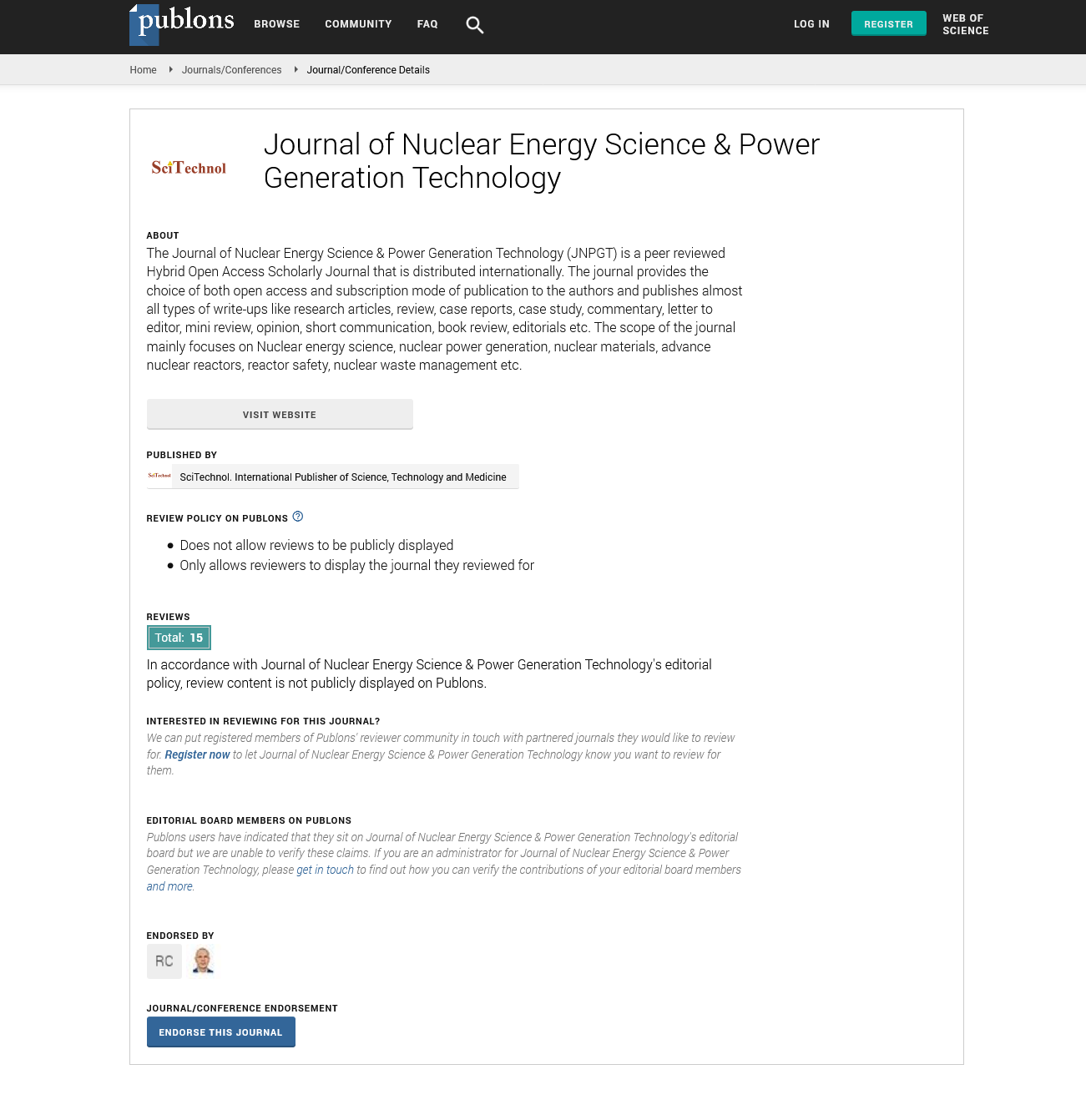Editorial, J Nucl Ene Sci Power Generat Technol Vol: 9 Issue: 3
Correlation of Electric Vehicles and Power Generation Industry
Karan Khatri*
Department of Mechanical Engineering, National Institute of Technology Warangal, India
*Corresponding Author : Karan Khatri Department of Mechanical Engineering, National Institute of Technology Warangal E-mail: karan.khatri055@gmail.comu
Received: July 31, 2020; Accepted: August 05, 2020; Published: August 13, 2020
Citation: Khatri K (2020) Correlation of Electric Vehicles and Power Generation Industry. J Nucl Ene Sci Power Generat Technol 9: 3. doi: 10.37532/jnpgt.2020.9(3).e109
Keywords: smart grid systems, power generation
Editorial
One of the out coming technologies hitting the board is electric vehicles. This technology is on the verge of emergence and caters to the need for an energy transition from conventional to renewable sources of energy. Electric vehicles came into existence in the 19th century but the advancement in battery management and power electronics devices has made EV’s more efficient and long-range compatible. Since every country is focusing on complete implementation of electric vehicles as it has zero tailpipe emissions and more eco-friendly. Due to this predicted demand for electricity is much more in the coming years including the multiple charging station facilities which will affect the power grid and reduce the electricity reserve margin by 15%. Hence, sustainable power generation is very important to stabilize the electricity supply and demand with the large implementation of Electric vehicles.
In today’s world, the conventional sources of energy like fossil fuels have been the dominant one for mobility as well as the power generation sector. As these sources may extinct in the coming years so electrification for the mobility sector is the only way to combat sustainable disruption. EV’s are the cleaner source of transportation as it emits zero tailpipe emissions. A trend in improving the energy transition system like photovoltaic energy and wind energy will fulfill the electricity demand for electric vehicles. The main task is the integration of electric vehicles into the electric power systems which may require monitoring in terms of economy, operations, and control benefits. By deploying many smart grid systems i.e using EV’s as power storage devices integrate transportation and power generation sectors. Even though, due to deep market penetration and volatility of electric vehicles in the near future, the annual increase in consumption of the electricity will be nearly negligible in the coming years. A study shows that a marginal increase in 2% of the power demand subsequently needed by electric vehicles does not affect the system stability of the power grid. The cost of electric vehicles is generally more than the conventional IC engine vehicles but the net energy consumption is less. Large level implementation of EV’s will require many charging stations since the charging time for charging the vehicles is around 7-8 hours which might increase the demand for energy consumption and also hamper the stability of the power grid. So, smart grid systems should be compelled with charging stations along with some renewable energy production sources to leverage the energy balance. The major problem will be the charging of EV’s at residential peak loads which would increase the load on the power grid so the charging time is equally important and a trade-off is to be done to make the optimized charging. The cost of using Electric vehicles as electric power carriers would be a bit expensive than the standard power generation system and may exploit local energy sources such as solar and wind energy but the vehicle to grid technology at large scale with correct charging pattern optimize the power generation and increase its network efficiency. Thus, subsequently, when the mobility and power generation integrates it will take the future to sustainable development and decentralize energy production as the source of the electric vehicles without hampering the stability of the power grid.
 Spanish
Spanish  Chinese
Chinese  Russian
Russian  German
German  French
French  Japanese
Japanese  Portuguese
Portuguese  Hindi
Hindi 

